You probably don't want it said to you
Online acronyms like SMH are a part of a growing trend in online communication and messaging. Using acronyms is meant to save you time by typing a few characters instead of a full phrase and help you express yourself better. In reality, if you don’t know the meaning of the common acronyms, you’ll spend longer on Google trying to figure out what your friend meant when they used SMH in a text.
With the rise of instant messaging apps, you can expect more of the short abbreviations like GG, NSFW, and HMU pop up all over the internet. Start by learning what SMH means and how to use it before it catches you off guard.

What Is SMH?
SMH stands for shaking my head or shake my head. It’s used to express disapproval, frustration, disappointment, or disbelief, depending on the context. Most commonly it’s used in texts or chat when someone says or does something you don’t approve of, and you’re looking for a quick and efficient way to express your emotions.
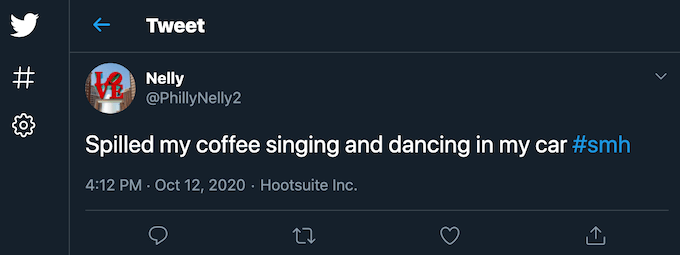
When the situation escalates, users sometimes pick a stronger version of this acronym. Sometimes SMH can be used to mean stupid minded humans, and so much hate. Although the message behind the acronym doesn’t change much in these cases.
Another popular variation of SMH is SMDH. It stands for shaking my damn head and is basically a more expressive version of the original acronym.
Examples of Use
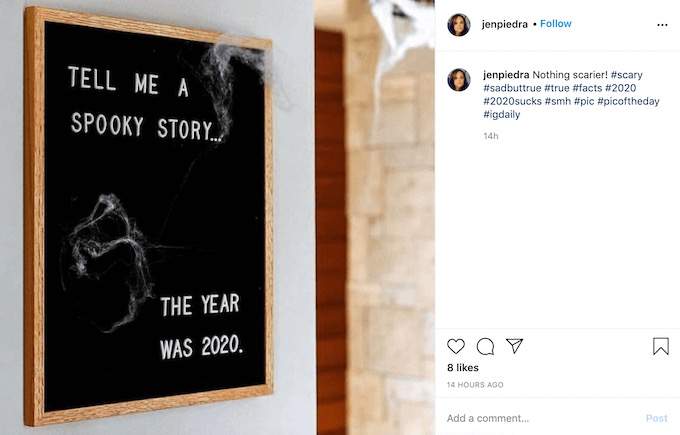
You’ll most likely see SMH used in a text from a friend or in a group chat. However, it’s also often used on social media networks like Twitter, Instagram, Facebook, and Snapchat as #SMH.
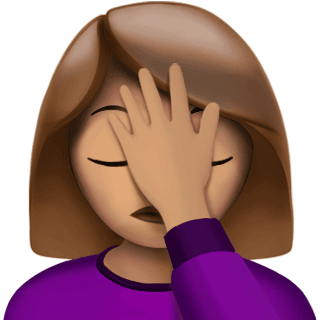
Sometimes SMH is followed by a facepalm emoji – with a person pressing a hand against their head. Both are used to express frustration, disbelief, or embarrassment by someone else’s words or actions.
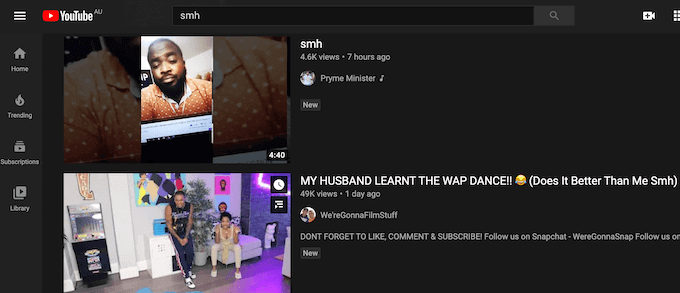
You can also find SMH used as a part of a YouTube video title or thumbnails. It’s a quick way to let viewers know your position on the issue raised in the video without overloading your title line.
The Origin of SMH
It’s difficult to trace back to exactly where SMH came from. Though it seems like it first appeared on Urban Dictionary in the early 2000s. It began spreading online around the same time as facepalm but eventually SMH won the race and is more widely used now than the former.
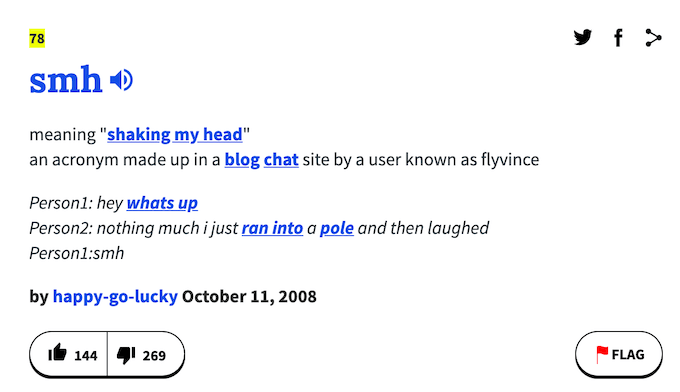
SMH followed the same path as every other trend on the internet. Its first appearance most likely took place on some forum or a chat website. It was then made into memes, then used in GIFs that people sent each other on messaging apps, until it finally became a popular hashtag used on social networks. Today people still sometimes use SMH in texts, though it’s often replaced with the facepalm emoji.
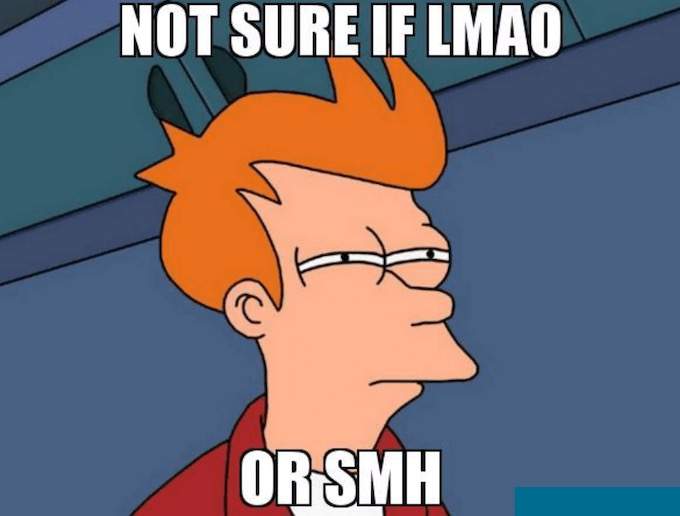
How to Use SMH
If you want to start using SMH in your daily communications, there are a few different ways to go about it. Your choice will mainly depend on your communication style and the app or network that you use to chat.
Use SMH in Texting
If you’re someone who mostly uses instant messaging apps for day-to-day communication, you can start using the SMH acronym in its original text form. Make sure you only use it when the situation calls for it, otherwise people might get annoyed at your sudden change of communication style.
Use SMH in response to another person’s actions, a certain situation, or an event that took place. If you feel like you can’t find the right words to express your emotions like disbelief, or frustration, it’s also the right time and place to use SMH.
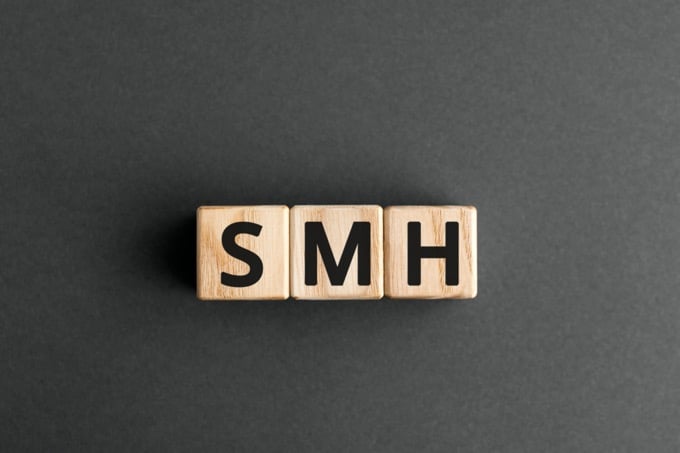
As for the right form of the acronym, there aren’t any strict rules as to what it should look like exactly. Here are some variations:
- SMH. Used on its own and in all upper-case letters to empathize your emotions.
- smh. Lower-case letters usually indicate a lower level of importance. A casual way to throw the acronym around without demanding immediate attention.
- SMH in the end of the phrase/message. For when you still need to articulate what your problem with the person or the situation is. Doesn’t come across as strong as SMH used on its own.
SMH isn’t always used in its original form. Sometimes users add more letters to express a certain attitude. Here are some of the popular variations of the acronym:
- SMHS. For when you’re not looking to come across as aggressive or emotional but rather friendly and playful, you can use SMHS which stands for shaking my head smiling.
- SMDH. For maximum effect, you can use SMDH which stands for shaking my damn head.
Use SMH as GIFs or Emojis
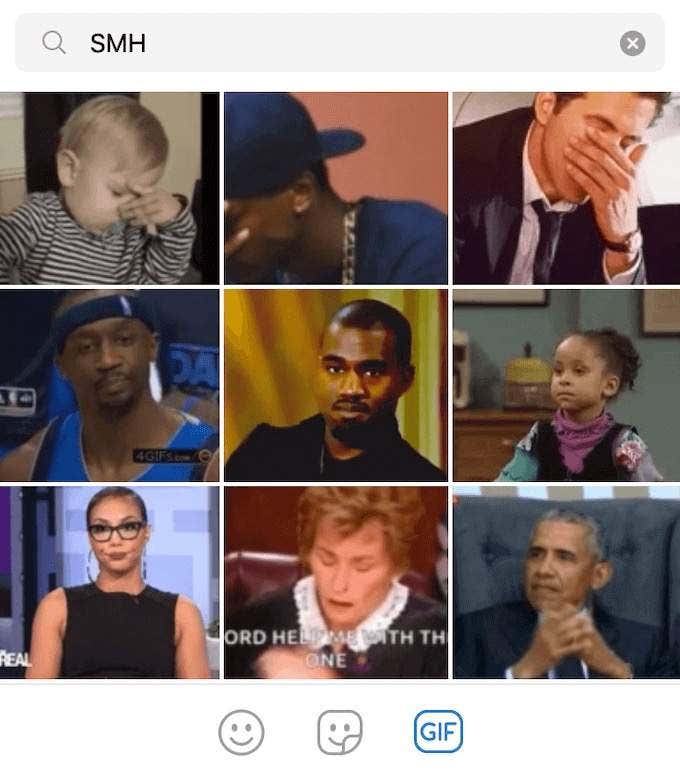
If your primary communication channels include social media sites, you might want to use SMH in a form of a funny GIF or emoji instead. Since tools like GIPHY are now integrated into most social media apps, it’s easy to search and select a suitable GIF to attach to your message.
The right GIF can help you communicate complicated feelings that are difficult to express using language, all with zero time wasted.
How Well Do You Know Your Online Slang?
SMH isn’t the only online acronym out there that can leave you puzzled when you see it in a text. Whether you choose to use it in your daily communication or not, knowing your online slang can help you communicate with people who come from different backgrounds, ages, and education levels.
Have you come across SMH before? What other acronyms used online have you had to Google to understand the meaning behind them? Share your experience with online slang with us in the comments below.




